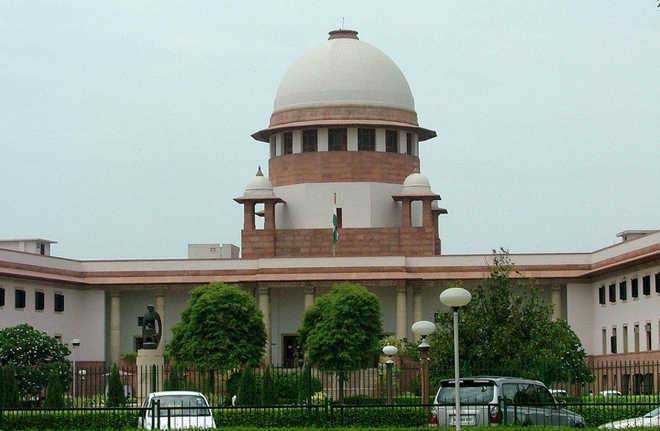
A three-judge bench headed by Chief Justice JS Khehar said it would hear the petitions filed by Muslim women against triple talaq, the intervention applications and also the government on the issue from May 11.
Satya Prakash
Tribune News Service
New Delhi, February 14
Terming triple talaq a human rights issue, the Supreme Court on Tuesday said it intended to decide petitions challenging the practice under Muslim Personal Law very soon.
A three-judge bench headed by Chief Justice JS Khehar said it would hear the petitions filed by Muslim women against triple talaq, the intervention applications and also the government on the issue from May 11.
The bench, however, made it clear that it was not dealing with the issue of Uniform Civil Code (UCC), which is currently being examined by the Law Commission of India.
(Follow The Tribune on Facebook; and Twitter @thetribunechd)
Many conservative Muslim groups, including Muslim Personal Law Board, have been opposing the UCC that has been a part of the BJP’s poll promise for decades.
The bench will take up the matter on February 16 to frame issues that would be considered by it during the hearing beginning from May 11.
The court said it would also consider the impact of international covenants and conventions India is signatory to while decoding the matter.
After the hearing, Attorney General Mukul Rohatgi told The Tribune: “The practices of triple talaq, polygamy and nikah halala--whether religious or not, and even if a part of personal law--are unconstitutional. They are hit by Article 14 (right to equality) of the Constitution. They perpetuate gender inequality.”
Rohatgi said that in major Muslim countries such practices were prohibited by law and some countries even prescribed punishment.
In its affidavit filed in October last year, the Centre had said that gender equality was part of the basic structure of the Constitution and non-negotiable.
This was the first time the government took a stand against these practices that have inherent gender bias.
Under Muslim personal law as practiced in India, a Muslim man can divorce his wife by pronouncing talaq thrice and is also permitted to have four wives.
There are separate sets of personal laws in India for each religion governing marriage, divorce, succession, adoption and maintenance. Hindu Law has substantially changed since the 1950s; activists complain that Muslim Law has hardly changed.
“Even though it may be true to say that only some women are directly and actually affected by these practices being divorced by talaq-e-bidat or being in a polygamous marriage, the fact remains that every woman to whom the law applies, lives under the threat, fear or prospect of being subject to these practices, which in turn impacts her status and her right to a life with confidence and dignity,” the Centre had said in its affidavit.
Several Muslim women and women groups have challenged the practice of triple talaq, polygamy and other practices on the grounds that they violated their fundamental rights to equality, right to non-discrimination and right to live with human dignity.



























